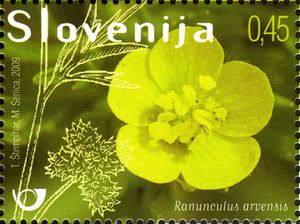The flora of cereal crops has declined dramatically in Catalonia (Spain) from the 50s to today. It is estimated that agricultural intensification has led to a reduction of over 50% of the wealth and 70% in the abundance of so-called weeds (flora arvense) respectively. This decline has been particularly dramatic in the rarest species and those that are characteristic of the harvest (segetals species). Agricultural practices more intense in the last five decades have also adversely affected the flora interesting for birds, pollinators and other invertebrates. Comparing data between conventional and organic crops shows that agricultural management that follows organic practices not only help the recovery of the biodiversity of the flora of crops, but also increases the rare species and those that are useful for wildlife.
However, it seems difficult to recover the highest levels of plant biodiversity in crops Catalonia observed before the intensification of agriculture.
This new study, publlished in Agriculture, Ecosystems & Environment, has been coordinated by Dra. Lourdes Chamorro (Institute of Biodiversity Research and the Department of Plant Biology at the UB). The other authors are Ramon Maria Masalles and Francesc Xavier Sans (head of the Agricultural Systems Ecology at the University of Barcelona).
Source: Science Daily, March 18, 2016
https://www.sciencedaily.com/releases/2016/03/160318090446.htm

- Login om te reageren
